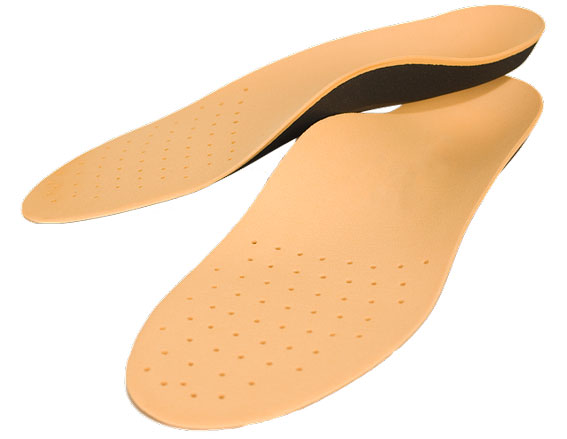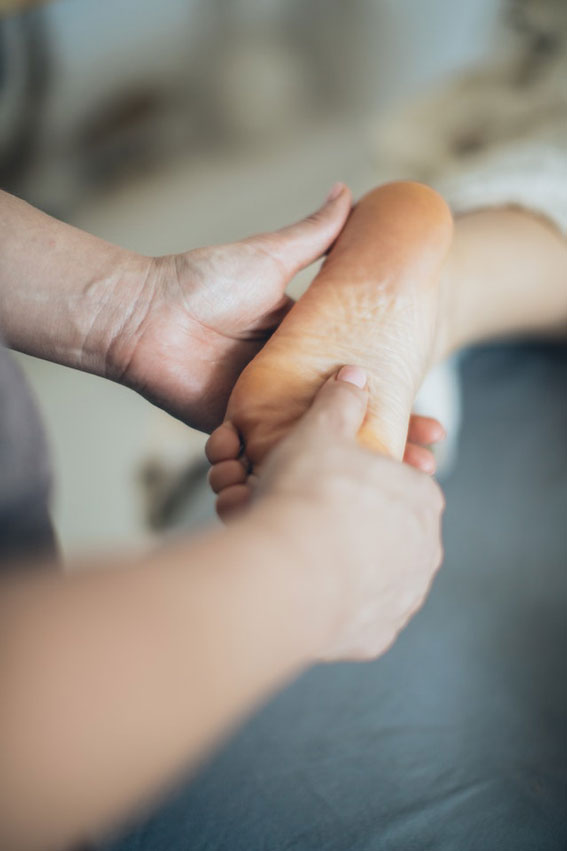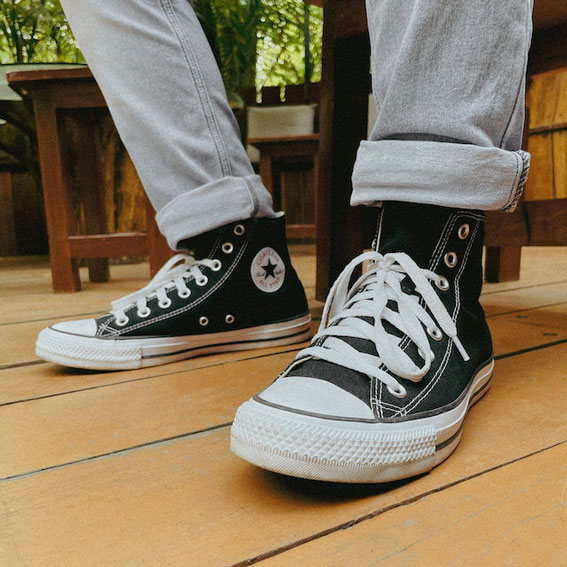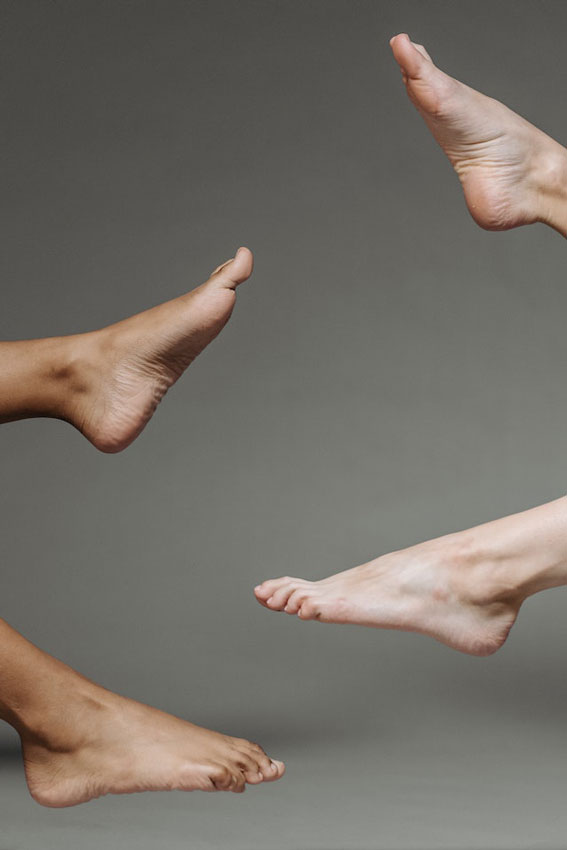Custom Orthotics Podiatrist
If you suffer from foot or leg joint pain, ankle instability, or even low back pain, you have probably tried different shoes and insoles to help you cope with the discomfort. While this is a quick band-aid fix, you may need more specialized treatment.
Custom insoles or orthotics from Foot & Ankle Center can help balance your feet and help you maintain a neutral position. Dr. Cameron’s treatments create less stress on your feet and ankles, resulting in a more efficient gait cycle and less fatigue and pain. Here are some questions you may have before consulting the region’s best podiatrist for custom orthotics:
What Are Custom Insoles or Orthotics?
To understand custom orthotics, you must be familiar with the three main types of shoe inserts. They have different price points, purposes, and quality:
- Over-The-Counter Insoles
These are the gel, foam, or plastic inserts you will see on the shelf in supermarkets and drug stores. Some stores may have scanning machines, but you will still receive a recommendation for a standard, pre-made insert. They will provide extra cushion and support, but they aren’t corrective in any way. The inexpensive material isn’t long-wearing and will give out in a few days to weeks. - Personalized Inserts
While these are a step in the right direction (pun intended), they are typically overpriced and still not giving you the customized insert you need. Specialty retailers get away with using “custom” in the title because they may give you a personalized foot assessment and recommendation. However, the product is similar to what you can buy off the shelf and will not provide foot correction and pain relief. - Customized Orthotics
These are the only device prescribed by a medical professional licensed to give you medical advice. When a podiatrist recommends custom orthotics, they mean their team will take a cast, impression, or 3-D scan of your foot. They will create inserts molded to your foot to the closest millimeter to help address and correct the root cause of your foot pain. Despite this in-depth process, they are affordable, especially when covered by your insurance, and they are long-lasting, too.

What Do Custom Orthotics Help Treat?
In addition to biomechanical problems with your feet, custom orthotics or insoles can help treat a myriad of issues, starting with your feet and working up to your lower back, including:
- Bunions
When joints in your feet are misaligned, they can enlarge, causing pain and inflammation. Over time, the joints can become stiff with a limited range of motion. - Flat Feet and High Arches
When you have arch issues, you may need extra support and alignment to improve mobility and prevent connective tissue problems like plantar fasciitis from developing. - Plantar Fasciitis
The band of tissue running along the bottom of your foot can become overstretched and inflamed, causing heel or arch pain and bone spurs. - Posterior Tibial Tendonitis
Like plantar fasciitis, this is a strain on the tendon inside your ankle. You will typically feel pain when walking or running when the tendon feels the brunt of your weight. - Morton’s Neuroma
A condition where the nerve in the ball of your foot becomes irritated and inflamed, causing sharp burning pain that can radiate into your toes. - Overpronation and Supination
When your feet roll inward or outward too much during movement, you can suffer collapsed arches, frequent ankle sprains, stress fractures, and other injuries. - Bursitis or Arthritis
When your joints or the fluid-filled sacs around them become inflamed, custom orthotics can help reduce pain and improve joint mobility. - Neuropathy
Often caused by diabetes, the nerve damage is irreversible, leading to several other complications with sensation, feeling, movement, balance, and pain.
If you have been suffering from any of these or other foot-related conditions, speak to a podiatrist to find the best medical intervention for you.

Why See A Podiatrist For My Custom Orthotics?
First, you will not get a prescribed medical device if you do not see a physician for your inserts, which will show in the item’s customization and quality. Podiatrists are specialized doctors with the training and knowledge about feet, biomechanics, and disorders to help diagnose and treat your specific problems. Your orthotics will be made precisely to your feet, size, and condition, which may mean two separate orthotics for each foot.
You will have access to follow-up care: as your treatment plan progresses, your orthotic needs may change. A podiatrist can reassess and recognize how your needs have changed–something a shoe expert or drugstore clerk will never recognize. Since this care will all be with a doctor, your insurance plan will likely cover some if not all of your treatment, unlike an online customized shoe retailer. No one is more skilled and qualified to create insoles for you to treat and ease your discomfort and pain.
What Type of Custom Insoles Do I Need?
Depending on your needs and medical issues, podiatrists can recommend functional or accommodative orthotics. A lab will make functional or rigid orthotics from harder materials like carbon fiber. They fit best in closed-toed, low-heeled shoes for leg joints or low back aches and pains.
Soft custom orthotics provide cushion for diabetic foot ulcers and plantar fasciitis, among other issues. They are also called accommodative and tend to be bulkier, sometimes requiring prescription shoes to fit them.
Do I Need To Wear My Custom Orthotics Every Day?
In short, yes. Your shoe inserts are like glasses. When you don’t wear prescribed glasses, you strain your eyes, causing eye pain and vision to worsen over time. When you don’t wear your orthotics, you are not correcting your foot problems and worsening your pain in the long run. You may experience transient discomfort initially but will feel the beneficial effects within a few weeks. Wearing them as much as possible will help control your pain and fatigue.
After your initial scan or cast, you can easily get multiple pairs made. You can have a spare pair for emergencies or for your house shoes, a variation to fit your running shoes or sports equipment such as ice skates or ski boots, or to fit specific styles of shoes such as flats for work. Check with your insurance plan; they may cover up to a few sets per year, so you can build up your supply. They should last for multiple years with proper care.


How Do I Take Care Of My Custom Insoles?
Once you have received your first pair of orthotics, you may need to learn how to care for them properly. Always check the care instructions with your podiatrist. However, it’s safe to say your insoles shouldn’t become a permanent fixture in your shoes. You should take them out, wipe them down or give them a gentle wash once a week, after exercise, or on hot days or prolonged usage. Never machine wash or soak your orthotics unless instructed; they should be dry before placing them back in your shoes for future use.
A general rule is to take them out at the end of each day to air out overnight and to clean them every weekend. Rotate your shoes and insoles every other day or so. This will help prolong the overall life of both your shoes and orthotics. Speak to your podiatrist if your orthotics show excessive wear, start to break apart, or are suddenly uncomfortable as they may no longer function effectively.
Don’t wait until you have permanent nerve damage, unbearable foot pain, or bone spurs requiring surgery. Dr. Cameron never underestimates your foot health, as it can severely impact your quality of life, and neither should you.
If your current insoles are not providing the same relief as before, or if you’ve never had prescription shoe insoles, call Foot & Ankle Center. They have a podiatry specialist board-certified in foot and ankle surgery with multiple convenient locations to review your treatment options. A consultation with a podiatrist will determine if custom orthotics are right for you.
